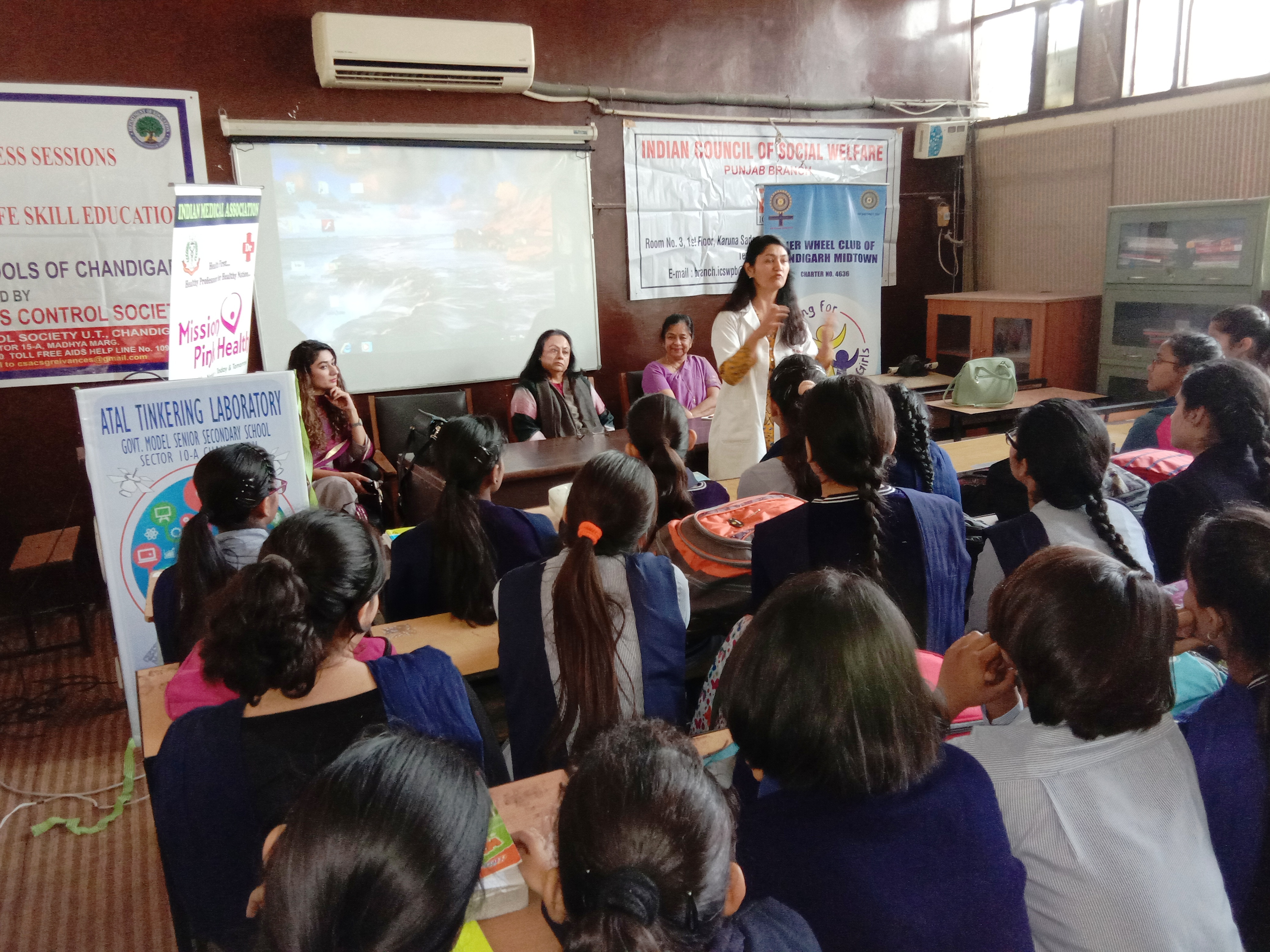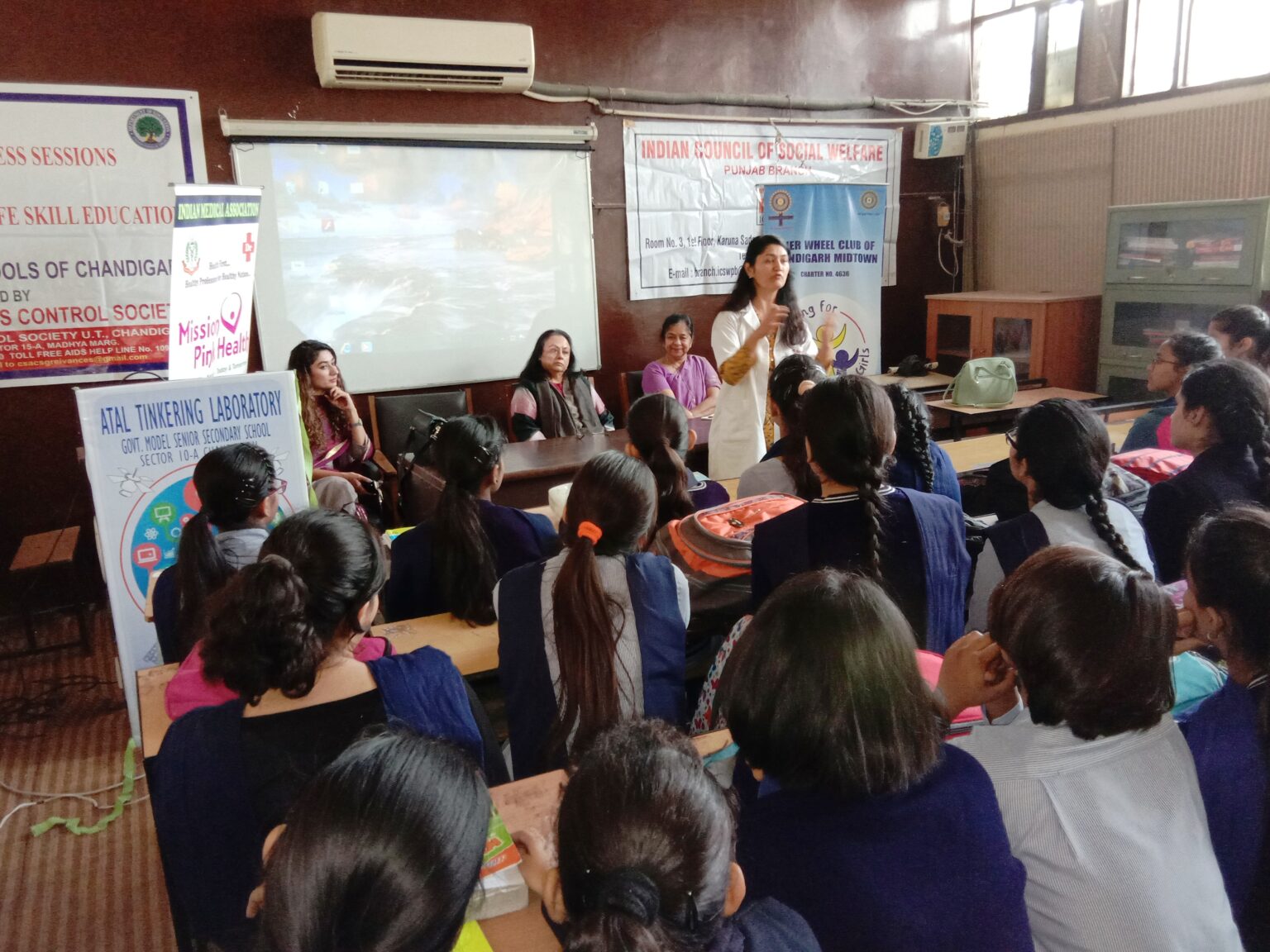
Chandigarh, 16th November 2018:
Young generation has always remained the icon to bring big changes in society because of their risk taking aptitudeVarious researchers also indicate that young people are at higher side of HIV/AIDS vulnerability because of their own careless behavior or gap in knowledge for hygienic and healthy life style. Approximately, Young People between the ages 15-24 are the group most affected by HIV/AIDS and account for 40% of all Adult HIV infections.
To address the issues, Chandigarh State AIDS Control Society, in collaboration with other organizations including Inner Wheel Club of Chandigarh Midtown, Indian Council of Social Welfare Punjab Branch, IMA’s Mission Pink Health, and Department of School Education, launched a series of awareness programme for School teenagers. The objective of the programme is to educate senior students about difference between Gender & Sex, prevention of Child abuse, tips of Personal hygiene, Menstruation hygiene & Reproductive health, learning of Good and Bad Touch & self care in crisis, prevention of HIV/AIDS and “Life Skill Education” for adolescent children in schools. The first sensitization programme was arranged at GMSSS MH Complex, Manimajra on 5.11.18. Today i.e. on 16th November 2018, it was the 7th School i.e. GMSSS, Sector 8, covered by the expert team of team of above mentioned organizations. The series will continue till the covering of all the schools of Chandigarh.
In all the schools, average 70 to 80 senior students of 9th to 12th class, from each school, were sensitized. They were educated about the self protection and safety of young children, modes of HIV/AIDS transmission and prevention and were motivated to inculcate safe and healthy lifestyles. Boys and girls were taught to respect each other and to report about any ill-behaviour by strangers or friends in society. A short telefilm “KOMAL” was screened to address the issue of “good touch and bad touch”.
Students were made aware about HIV/AIDS Toll Free Helpline 1097 and Child Helpline 1098. At the end of the programme, an interactive session was conducted in which the experts answered the queries of students.




